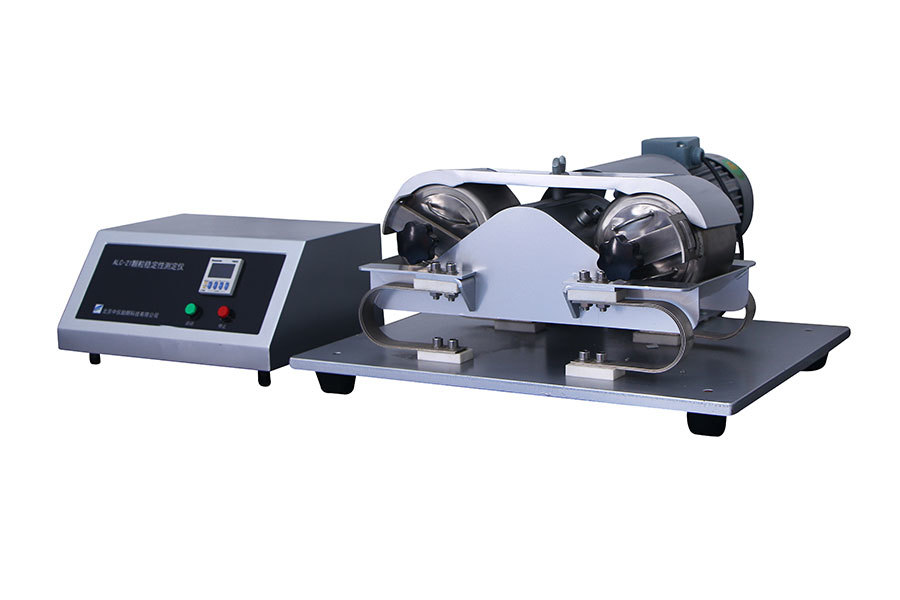Understanding Particle Stability Testers: Essential Tools for Electrical Measurement
Sep 27,2025

Particle Stability Testers are specialized instruments designed to assess the stability of particles in various electrical materials and fluids. In the electrical engineering field, understanding particle stability is crucial for maintaining the integrity and performance of electrical components. This testing process evaluates the behavior of particles, which can include contaminants, in insulation materials or dielectric fluids. The presence of unstable particles can affect the performance and safety of electrical devices, making the use of Particle Stability Testers essential in quality assurance processes.
One of the key functions of a Particle Stability Tester is to analyze the dispersion and agglomeration of particles within a given medium. The stability of these particles is pivotal because it influences the dielectric properties of insulating materials, which are critical for preventing electrical failures. The tester helps identify whether particles remain evenly distributed or if they cluster together over time, potentially leading to insulation breakdown or reduced dielectric strength.
When selecting a Particle Stability Tester, it is important to consider factors such as the type of material being tested and the specific particle size and distribution that need to be evaluated. Each tester may offer different methodologies for measuring particle stability, including dynamic light scattering or laser diffraction techniques, which can provide comprehensive insights into the particle size distribution and stability of the samples.
Another crucial aspect of using Particle Stability Testers is understanding the environmental conditions under which the materials and fluids will be used. Temperature variations, humidity levels, and other environmental factors can significantly impact particle stability. Therefore, conducting tests under various simulated conditions can yield valuable data regarding how particles behave in real-world scenarios.
In addition to improving product performance, the use of Particle Stability Testers can also aid in compliance with industry standards and regulations. Many electrical devices are subject to stringent safety guidelines, and regular testing for particle stability ensures that manufacturers can meet these requirements effectively. This not only enhances consumer trust but also helps in avoiding costly recalls or safety incidents.
In conclusion, Particle Stability Testers play a vital role in the electrical industry by providing critical insights into the behavior of particles in electrical materials. Understanding particle stability is essential for ensuring the reliability, efficiency, and safety of electrical devices. As technology continues to advance, employing sophisticated testing methods will be key to staying ahead in quality assurance and regulatory compliance within the electrical engineering sector.
One of the key functions of a Particle Stability Tester is to analyze the dispersion and agglomeration of particles within a given medium. The stability of these particles is pivotal because it influences the dielectric properties of insulating materials, which are critical for preventing electrical failures. The tester helps identify whether particles remain evenly distributed or if they cluster together over time, potentially leading to insulation breakdown or reduced dielectric strength.
When selecting a Particle Stability Tester, it is important to consider factors such as the type of material being tested and the specific particle size and distribution that need to be evaluated. Each tester may offer different methodologies for measuring particle stability, including dynamic light scattering or laser diffraction techniques, which can provide comprehensive insights into the particle size distribution and stability of the samples.
Another crucial aspect of using Particle Stability Testers is understanding the environmental conditions under which the materials and fluids will be used. Temperature variations, humidity levels, and other environmental factors can significantly impact particle stability. Therefore, conducting tests under various simulated conditions can yield valuable data regarding how particles behave in real-world scenarios.
In addition to improving product performance, the use of Particle Stability Testers can also aid in compliance with industry standards and regulations. Many electrical devices are subject to stringent safety guidelines, and regular testing for particle stability ensures that manufacturers can meet these requirements effectively. This not only enhances consumer trust but also helps in avoiding costly recalls or safety incidents.
In conclusion, Particle Stability Testers play a vital role in the electrical industry by providing critical insights into the behavior of particles in electrical materials. Understanding particle stability is essential for ensuring the reliability, efficiency, and safety of electrical devices. As technology continues to advance, employing sophisticated testing methods will be key to staying ahead in quality assurance and regulatory compliance within the electrical engineering sector.
Contact Us








